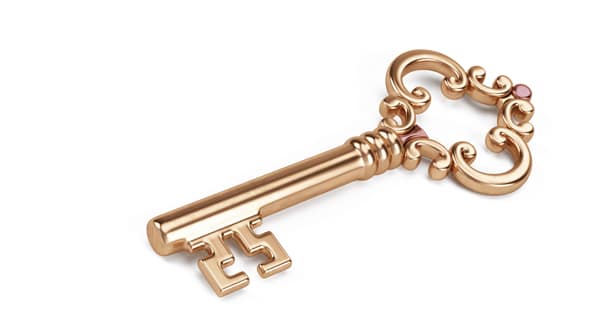What is information security and why does online privacy matter for escorts?

One of the best parts about what I do is being allowed to skip over a lot of hoop-jumping nonsense and get straight to the good stuff. It’s an incredible privilege, getting to share intimate thoughts and feelings with someone quickly and without the days, weeks, months or years of trust-building effort that goes into other types of relationships.
With incredible privilege though, comes incredible responsibility. I treat personal and online privacy quite seriously, and I work very hard to ensure that what we do and say stays just between you and I.
Hard as I try, I can’t do it all by myself. It might be helpful to think of information security a bit like vaccines: most effective when everyone participates, whether one believes they are personally at risk or not.
This page will explain a little more about what I do to ensure my secrets stay secret, and some basic (and free!) ways you can protect yourself. We can think of all of these ideas as falling under the broad heading of “information security.”
- What is encryption?
- How does this site use encryption?
- What about encrypted email?
- Should one’s computer be encrypted too?
- Are internet connections encrypted?
- Phones are encrypted, right?
- What apps can I use to connect?
- That’s a lot. Are you crazy?
What is encryption?
You’ve no doubt heard the term before, but might be unsure about what it is or why it matters. The quick and dirty outline of encryption is “the translation of data into a secret code. Encryption is the most effective way to achieve data security. To read an encrypted file, you [or more accurately, your computer] must have access to a secret key or password that enables you to decrypt it.”
It’s certainly much more complicated than that, but that’s the outline of what happens between my computer (or phone) and yours. You will see several instances of different types of encryption in the paragraphs ahead.
How does this site use encryption?
The site you’re reading this on now (my website) is encrypted and uses a security certificate to ensure that any information passed between the site and your computer (in either direction) is encrypted and unreadable by any third party who might try to pry.
This site employs a SHA-256 with RSA Encryption SLL certificate and you can always check the validity of this or any certificate by clicking the padlock icon next to the site’s URL. SHA-256 is considered “bank level” encryption, and is the same type used by global sites like Amazon and Deutsche Bank.

Additionally, this site is hosted by a company in Switzerland that is extremely reputable for their security practices and defense of the rights of individuals to maintain their personal privacy. Their data center employs a 5-level physical security concept and is globally certified as a bank data center. That’s important to me, perhaps more so than to you.
What about encrypted email?
With the signing into law of the FOSTA/SESTA package, all US-based email systems became a liability for anyone working in the sex industry. Does this mean everyone immediately stopped using Gmail back in 2018? Of course not. Most email is reasonably secure and only someone with the password would be able to access the messages in an average account.
But with federal law now potentially facilitating the issuance of warrants or court orders, companies like Google and Yahoo have had no choice but to make regular practice of handing over any and all customer data related to legitimate law enforcement requests. One should never assume one is safe or that privacy is guaranteed with US-based systems or companies.
My personal email system of choice is run by a company called ProtonMail, which is Swiss-based and operated. Proton uses end-to-end encryption to ensure that only a recipient with the proper decryption key is able to decipher a message. Going a step further, ProtonMail employs what is called “zero access” encryption, so that even they as a company could not decrypt messages held on their servers.
While they might ultimately one day be compelled by a court order to hand over usage or account information, the messages stored within that account would remain encrypted, as they have no access to the decryption keys held by the account owner.
Find out more about ProtonMail and sign up here.
Should one’s computer be encrypted too?
I work only on an encrypted laptop and I do not save communications to my hard drive. If someone were to obtain that laptop, aside from being unable to access or read any of the local files, they would only truly be in possession of the programs and graphic files I used to build this site. There is no local backup of emails, or a “little black book” of contacts that might one day spill out into the world, should my computer be compromised.
One of the best reassurances I’ve ever received was from an Apple technician who asked if I “worked for the government or something,” after attempting to replace my keyboard and finding he was unable to access even the machine’s basic diagnostic information.
Here’s a great guide to encrypting all your devices, from phones, to desktops.
Are internet connections encrypted?
I have a private, unshared internet connection at home, and any work I do on this site, or any communications I have via my laptop or my phone, occur over a no-log VPN, or a “virtual private network.” Meaning that even if someone were trying to track what I do and say online, they would be unable to do so without being physically next to me and reading over my shoulder (I live alone, so we’re safe there).
I strongly encourage everyone to consider using at least a commercial VPN to protect themselves online. US law allows internet providers (like Verizon, Optimum, and others) to view, collect, and resell (for advertising or data mining purposes) the usage histories of their customers by default and without requiring users’ consent. Simply using their service is considered permission. A VPN is one way to make this less possible (for about $4 a month). It is sensible to consider the cost of a VPN simply part of the monthly internet bill.
Nord is one of the largest commercial VPNs and regularly has discounts and intro offers. You can even try it free for 30 days.
Phones are encrypted, right?
Some.
But not all, and often not by default.
I use a separate encrypted phone for work that can be turned off remotely or permanently bricked if necessary. If it is ever out of my possession, I can still track it, shut it down, or stop it from ever working again. This phone operates over a similar VPN network as my computer, regardless of where I am in the world, and I avoid public wifi/wlan like one avoids a dirty toilet seat lid.
I don’t save any contacts or names on this device, so you’ll forgive me if sometimes I need to ask who you are, even if we’ve interacted before. My brain can remember a lot of numbers, but not always right away. I promise you won’t be forgotten, even if your phone number or email address is (momentarily). Telegram helps to alleviate this by associating a username and profile image. But for security, Telegram contacts are not stored either.
What apps can I use to connect?
I do not use traditional voice calling or SMS texting, even in my personal life. Even with my moms. Both of those protocols leave fingerprints and histories available on a physical device, as well as in the hands of service providers (like AT&T and TMobile). SMS is unencrypted by default and anyone with the right equipment and a vested interest is able to intercept and read any messages sent this way.
We can do better.
I like the Telegram app a lot and it functions exactly the same way as most text message or chats that people are accustomed to. There’s no new interface to learn or new features to sign up for. The key difference is that Telegram offers a function called “secret chat” that is encrypted on both sides (my phone and yours – not able to be intercepted by any third parties) and does not store messages on any server or computer in the middle. Additionally, messages can be set to self destruct, leaving no trace of the sender or what was said. It’s a safer way to talk details, and share intimate information or photos.
You can download Telegram for Apple or Android for free. Read my start-to-finish guide on how to set up Telegram and join my Private Channel for uncensored personal content you won’t find on Twitter or Instagram.
I am also available by Wire and Signal, if you already have a preference for either of those platforms. I do not make that contact information public, but am glad to provide it upon request. Send me an email or Telegram message requesting it and I’ll be happy to share and connect that way.
That’s a lot. Are you crazy?
Crazy for security and the universal right to privacy!
I’m not crazy and I recognize this might all sound like paranoia or even overkill at first glance. But after an endless parade of high profile cases in the news the last few years, the lesson is that it’s better to be safe than sorry. I love my work so much that I go to great pains and personal expense to make sure that what I do stays my own business.
The people I meet deserve the same consideration.
I also want to assure you that despite my social followings on Twitter and Instagram, and the hugely sexual nature of my personal blog, you won’t find any mention (ever) of clients, dates, or even coded descriptions of what I get up to. Those outlets are just a way for me to offer up some of myself—the music I like, the porn I jack off to, the stuff I think about—to you, so that you might know me a little bit better. It won’t ever be a place I expose anyone or reveal details about who I know and what they enjoy.
My secrets stay secret.
Learn more about free and easy ways you can protect yourself.

Frequently asked questions about online privacy and security
Read the full list of frequently asked questions here.


